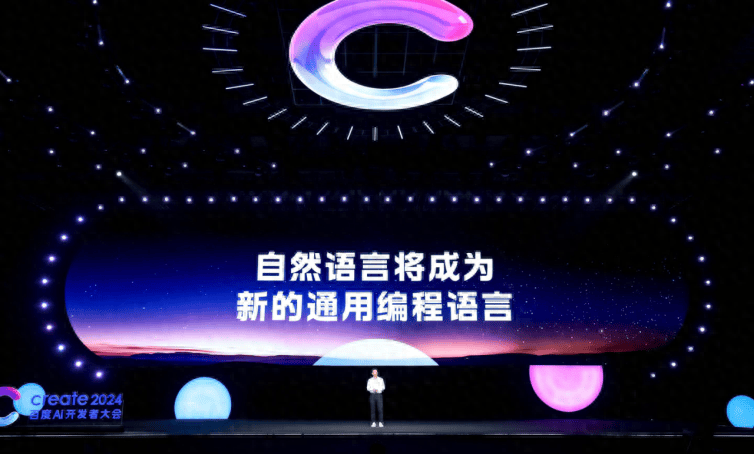On April 16th, the Create 2024 Baidu AI Developer Conference took place in Shenzhen, where Baidu’s founder, chairman, and CEO Robin Li delivered a keynote speech titled “Everyone is a Developer.” This marked Li’s first speech of 2024.
“Large models and generative AI will completely transform the developer community,” Li remarked. In the past, developers changed the world with code; in the future, natural language will become the new universal programming language. “If you can speak, you can be a developer, using your creativity to change the world.”

He emphasized that Baidu, as a technology company, aims to provide necessary development tools to everyone to enhance societal creativity. This includes a robust series of basic models and three major AI development tools, forming a toolbox for developers to take away and use as needed.
Among them, the powerful series of basic models, known as the Wenxin Large Model Series, includes flagship versions ERNIE 3.5 and 4.0, as well as lightweight versions ERNIE Speed, Lite, Tiny, etc. Li introduced that since the release of Wenxin Yiyu over a year ago, the user base has exceeded 200 million, with API daily call volume surpassing 200 million, serving 85,000 customers, and over 190,000 AI native applications developed using the Qianfan platform. On that day, the tool version of Wenxin Large Model 4.0 was also officially released.
He also stressed that smaller-sized models derived from the powerful Wenxin 4.0 through dimensionality reduction and pruning perform significantly better at the same size compared to models directly obtained from open source. At equivalent performance, the cost is significantly lower. “Previously, people thought open source was cheaper, but in the context of large models, it’s the most expensive. Therefore, open source models will become increasingly outdated.”
The three major AI development tools include the Intelligent Agent Development Tool AgentBuilder, the AI Native Application Development Tool AppBuilder, and ModelBuilder for customizing models of various sizes. “These three tools represent advanced productivity,” Li said. They are tools that Baidu has specifically prepared for developers in the directions of MoE, small models, and intelligent agents, providing “ready-to-use” solutions.
“This is what Baidu has gained from countless pitfalls and expensive lessons over the past year,” explained Li. Based on the specific ideas of developing AI native applications using large models, it should include three main directions:
Firstly, MoE. In the future, large-scale AI native applications will be based on MoE architecture, where MoE refers not to a general academic concept but to the mixed use of large and small models, without relying on a single model to solve all problems.
Secondly, small models. Small models have low inference costs and fast response times. In some specific scenarios, small models refined through SFT can achieve usage effects comparable to large models.
Thirdly, intelligent agents. The mechanism of intelligent agents, including understanding, planning, reflection, and evolution, enables machines to think and act like humans, autonomously completing complex tasks, continuously learning in the environment, achieving self-iteration, and evolution. As the capabilities of intelligent agents improve, they will continuously spawn a large number of new applications.